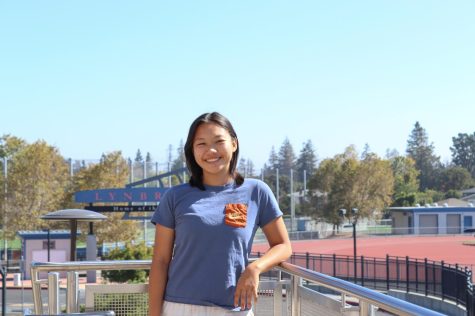New math guidelines bring integrated courses, not integrals
Graphic illustration by Timothy Kim
Education administratives may change the math curriculum if proposals are approved.
December 7, 2021
In February 2021, the Instructional Quality Commission, the advisory body to the California Board of Education, released new guidelines for mathematical education. If approved in July 2022, the guidelines may drastically alter the subject’s framework by offering alternative courses to calculus and integrating middle school math classes.
The IQC hopes that the new guidelines will create an inclusive and equitable environment for mathematical education. However, the proposal received severe backlash from parents and community members who felt it would hinder high achievers and prevent students from meeting calculus prerequisites for STEM majors.
The new guidelines promote integrated math — a type of mathematics education that covers multiple topics in one course — for middle schoolers to help students see the connections between mathematical topics. It also intends to create a more equitable environment by requiring all middle students to take the same math curriculum, so students will no longer be placed into classes varying in difficulty based on a diagnostic test taken in fifth grade.
Some community members feel that such changes, also known as de-tracking — as students will no longer be separated into different tracks — will hold back high-achieving students who are ready for more challenging material. They also argue that already struggling students will lag further behind in class that do not suit their level.
“The current form of tracked courses is already sort of a mix of integrated and non-integrated courses because you are taught based on what skill level you are, while also keeping students with others in their grade level,” sophomore Anish Lakkapragada said. “I think it is a pretty good model because it doesn’t make students feel bad about themselves without diluting rigor.”
While supporters say that de-tracking will lead to more students taking advanced math classes in the future, opponents say tracking may be the only way to overcome requirements for STEM majors: calculus.
The IQC hopes to prevent students from rushing to fulfiill calculus prerequisites by offering data science, which could be of equal weight on certain college applications. In fact, some colleges, including those in the UC system, have already changed their requirements to allow data science courses as the required third year of mathematics.
The IQC argues data science practices 21st century skills, contrasting traditional math lessons that have been criticized as methodical and irrelevant to real life.
“Whether it’s asking students to collect their own data, create their own mathematical models or come up with their own questions, it’s just giving them an experience that might be new,” FUHSD Math Curriculum Lead Jessica Uy said. “It’s not like one is better than the other — it’s just a different approach.”
In the Framework Second Field Review, the IQC states that “the push to enroll more students in high-school calculus often leads to shortchanging important content that does not lead directly to success in the advanced placement calculus syllabus, which is significantly procedural.” The commission hopes that this new guideline will encourage students to not rush into calculus.
Due to the increasing relevance of social justice, guidelines suggest teachers educate students about social justice and equity issues through math problems. Word problems will be examined and recreated if they contain gender or racial stereotypes. Ultimately, these efforts aim to teach students to apply similar investigations in the real world and learn to question societal norms, which is also what the IQC hopes students will gain from data science.
In addition, the IQC wants to make a mathematical education more equitable, a goal that FUHSD is already working toward.
“We’ve really been focusing on professional development to create equitable learning for students,” FUHSD Coordinator of Curriculum & Teacher Leadership Welton Kwong said. “We certainly invested a lot of time, effort and resources into professional development so that students can experience math in various ways and productively struggle through math tasks. We think about equity that way: How teachers can support students to learn moves, strategies and practices so that students can access and experience math in multiple ways.”
The first 60-day public commentary period for these guidelines has sparked backlash from community members who believe the current system should not be changed, but proponents of the change say it will benefit students who normally would not have excelled at math. The second 60-day public commentary period is scheduled for spring 2022, and the California Board of Education will be able to approve the guidelines as early as summer 2022. If approved, the new framework will not become a mandate at FUHSD but will act as guidelines that the district can choose to follow.





























































